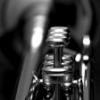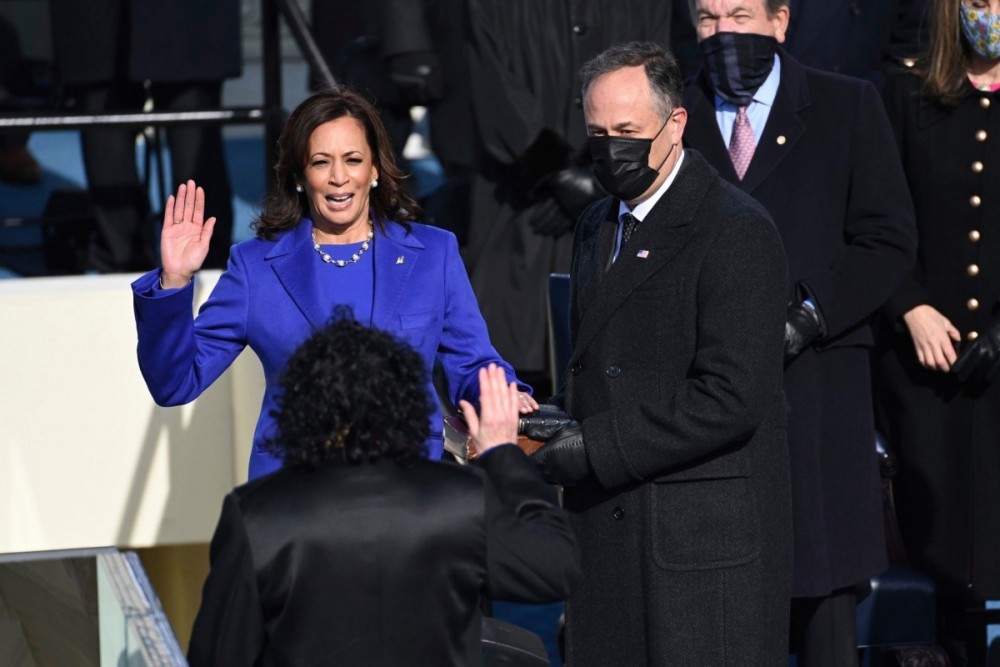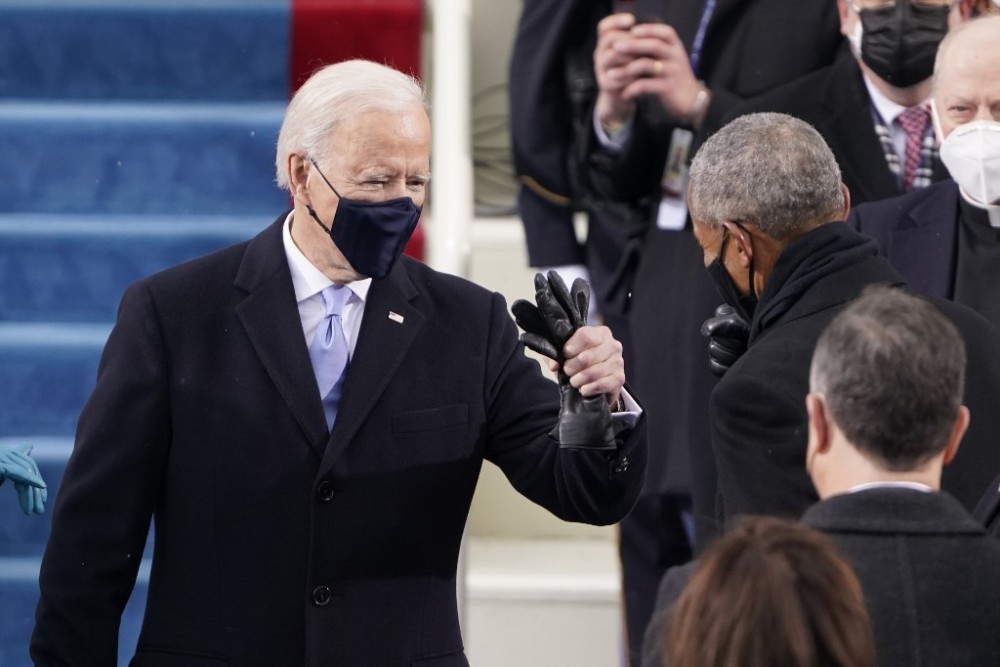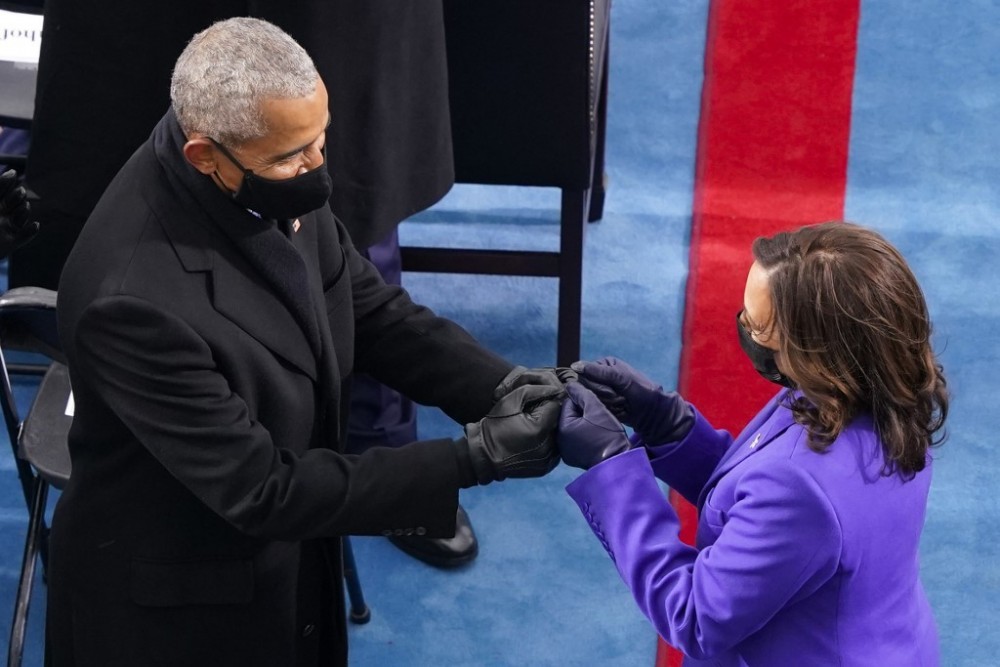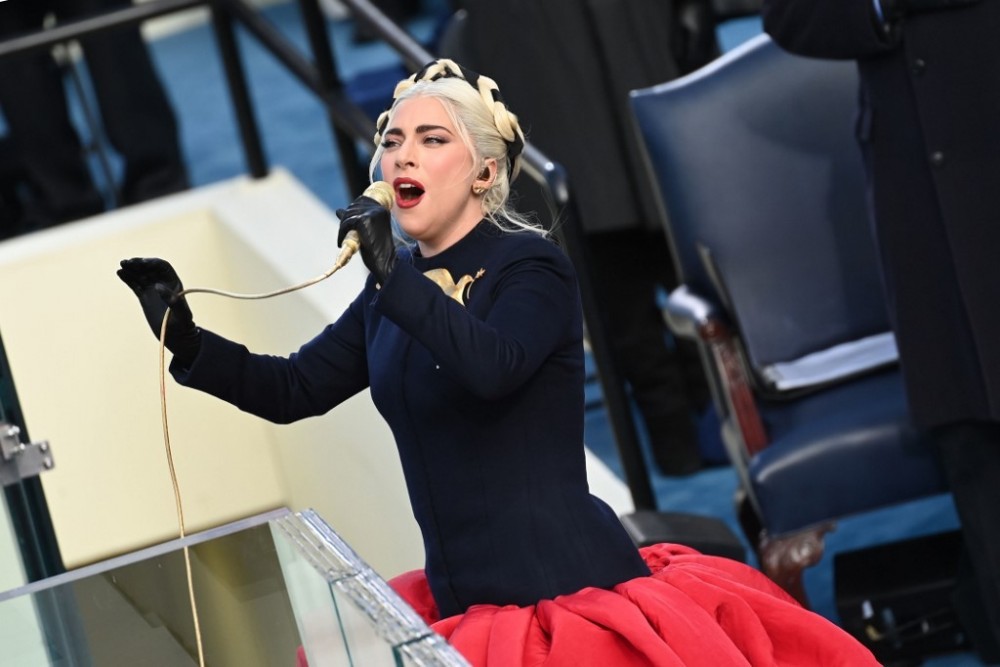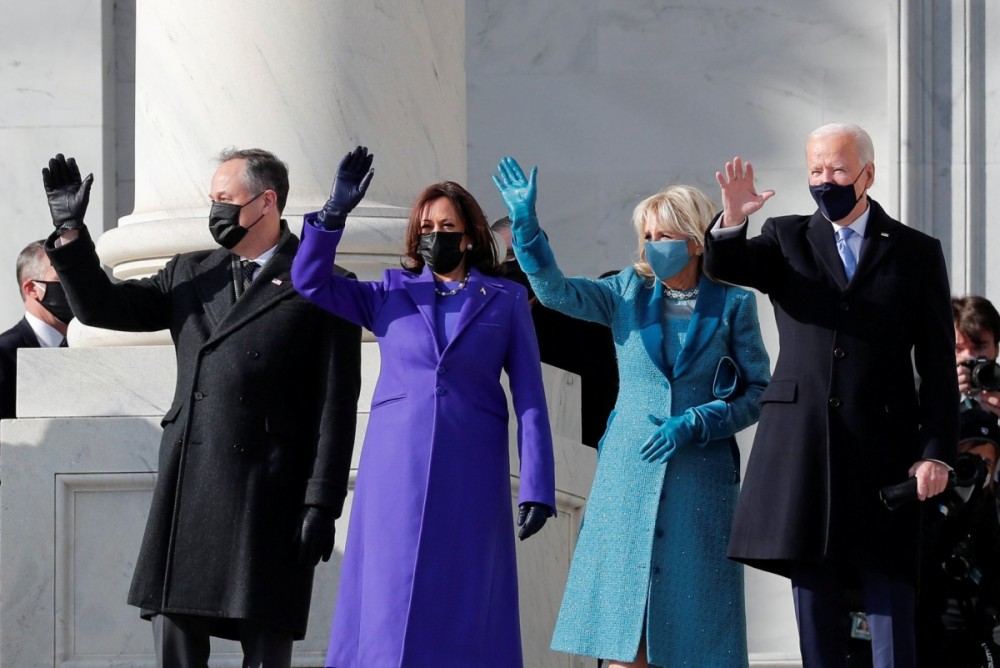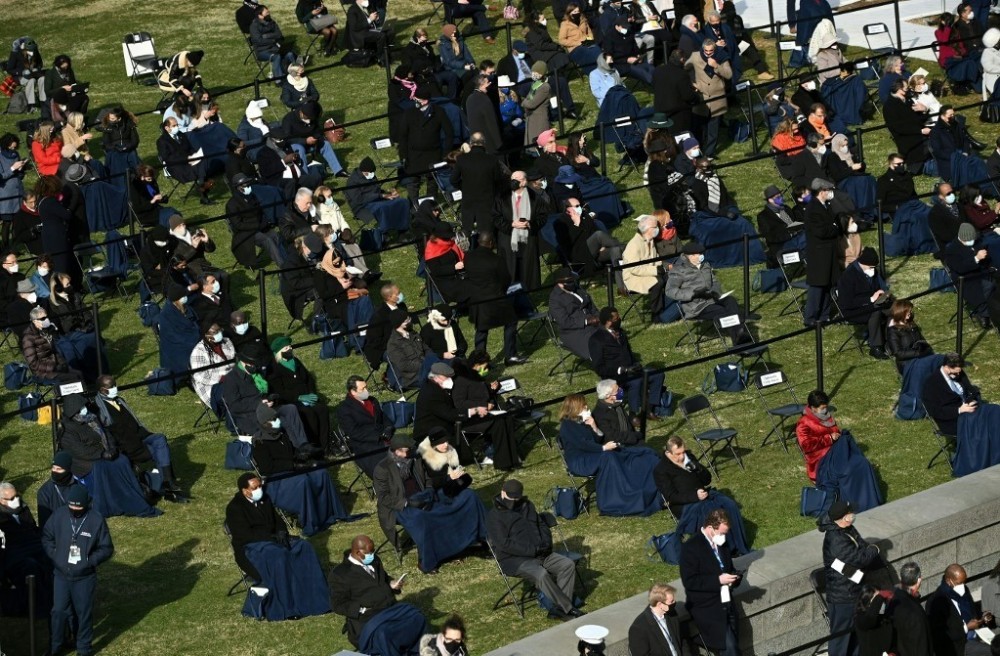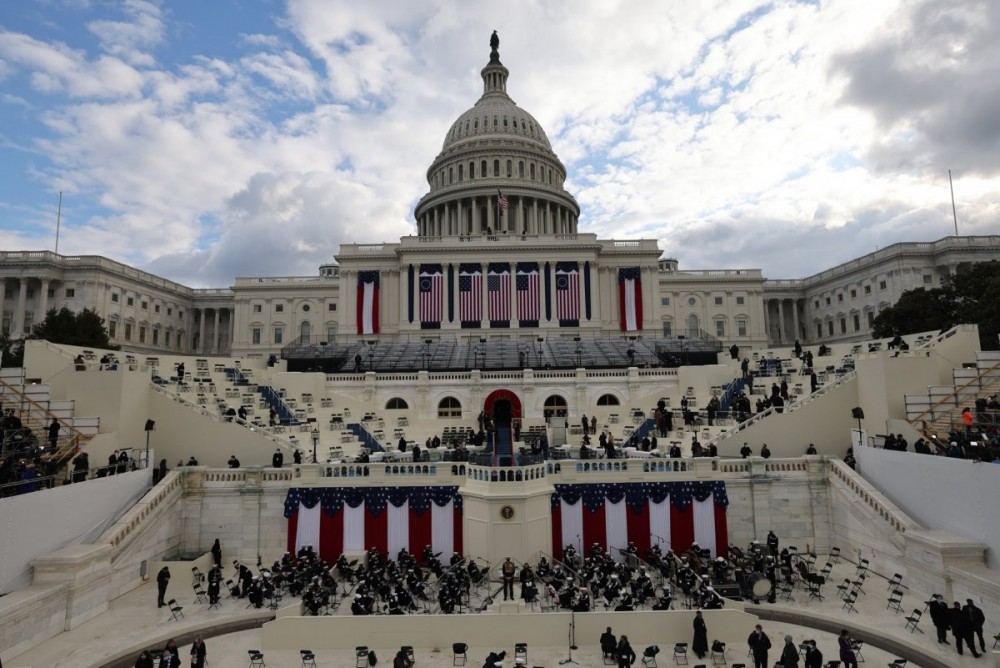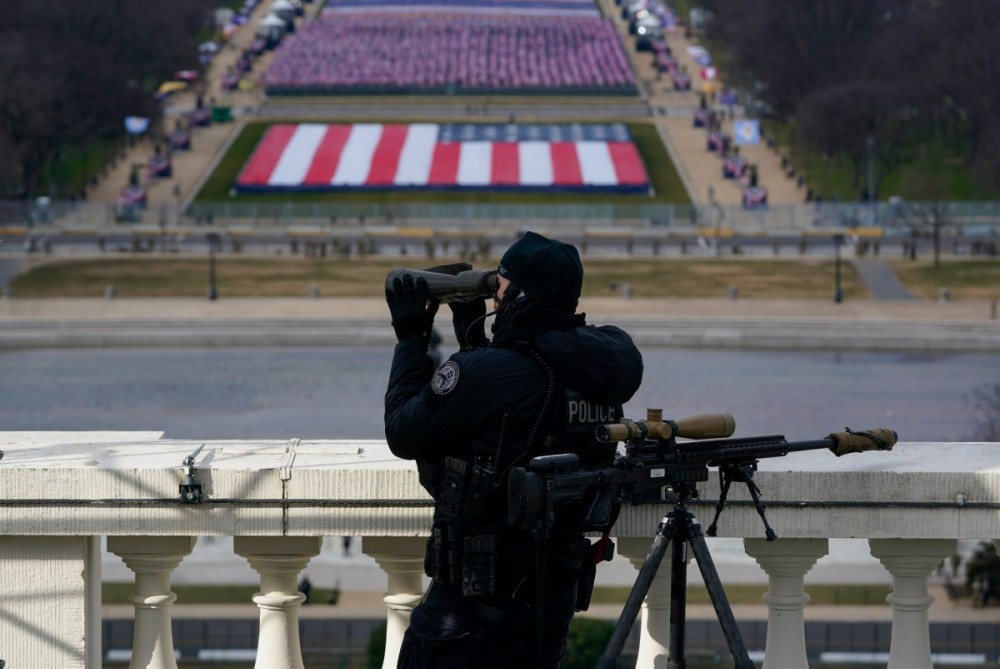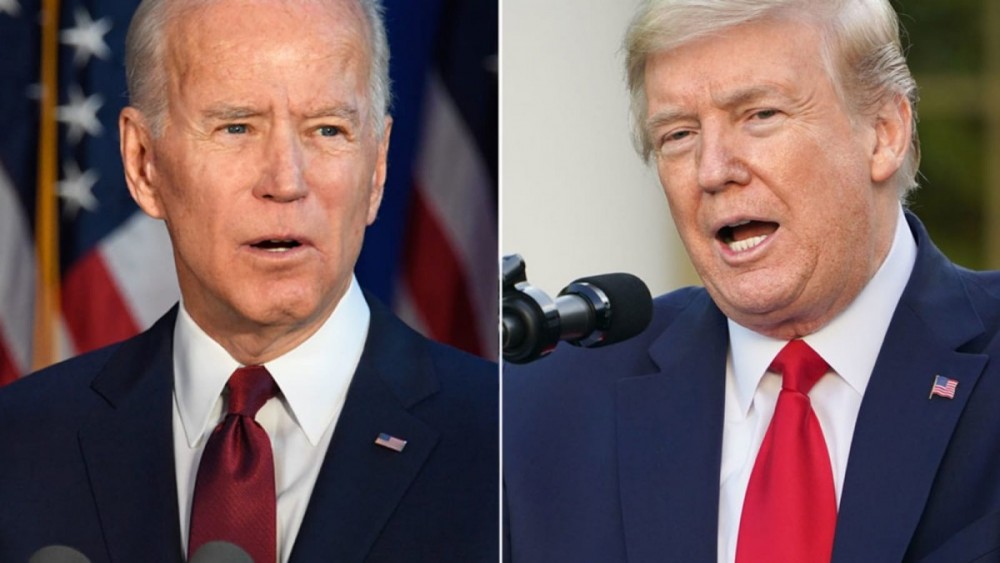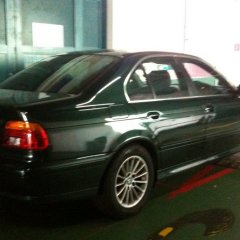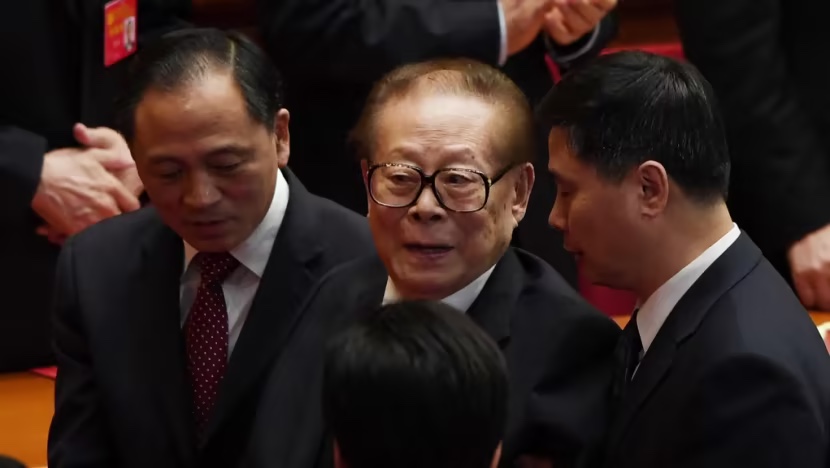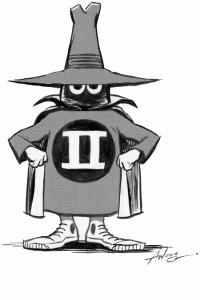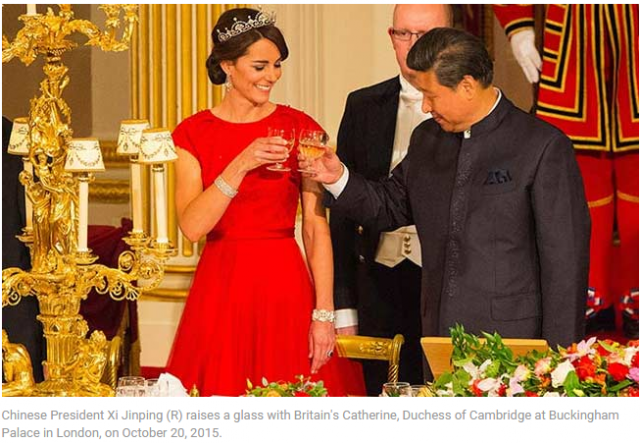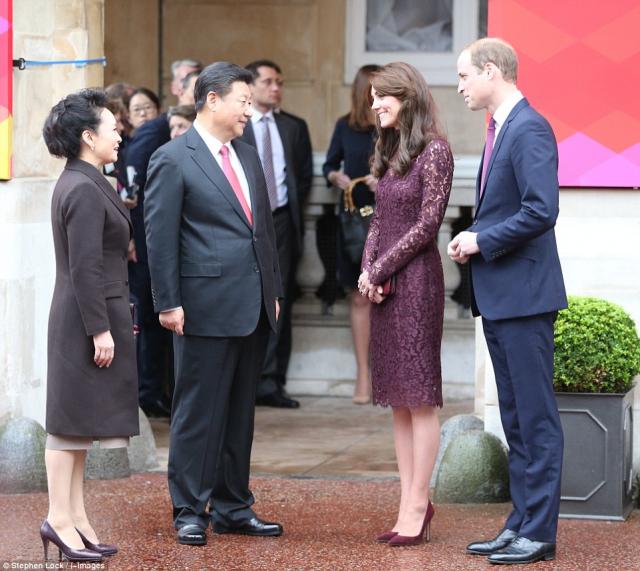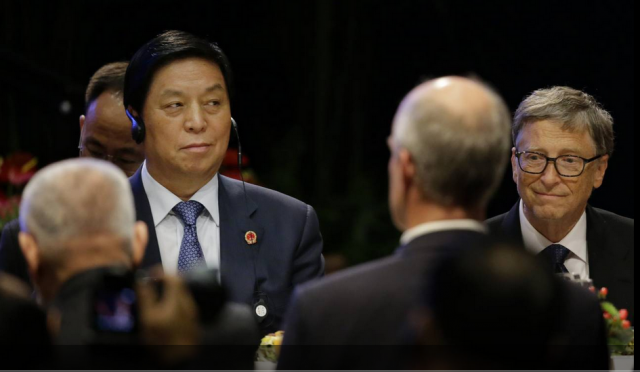Search the Community
Showing results for tags 'President'.
-
Xi Jinping signals intent to remain in power by revealing politburo with no successor https://www.theguardian.com/world/2017/oct/25/xi-jinping-signals-intent-power-successor-politburo-china China’s president unveils his all-male cabinet, but crucially no member is young enough to take the reins...
-
What happened? South Korean declared Martial law? https://www.channelnewsasia.com/east-asia/south-korea-president-yoon-suk-yeol-declares-martial-law-4784501?cid=internal_sharetool_androidphone_03122024_cna https://www.straitstimes.com/asia/east-asia/south-korea-president-yoon-d...
-
Because Joe Biden deserves a thread of his own for the next four years. WASHINGTON: Democrat Joe Biden was on Wednesday (Jan 20) sworn in as the 46th President of the United States. With his hand on a five-inch thick heirloom Bible that has been in his family for mor...
-
Eric Cantona announces bid for French presidency Eric Cantona, the former Manchester United striker, has said he wants to run in this year's presidential election in France and is trying to gather the signatures needed to do so. The footballer, who would need the backing of 500 elec...
-
By Channel NewsAsia, Updated: 29/07/2011 Tan Kin Lian defends TOTO, 4D applications by his firm Tan Kin Lian defends TOTO, 4D applications by his firm SINGAPORE: Business development manager Kelvin Lee was surfing through the iPhone App store on Wednesday night when he stumbled on...
-
- 2,900 replies
-
- 4
-

-
Jiang Zemin, who succeeded Deng Xiaoping as China's leader, died from leukaemia and multiple organ failure. BEIJING: China's former leader Jiang Zemin, who steered the country through a transformational era from the late 1980s and into the new millennium, died on Wednesday (Nov 30) at the age o...
- 14 replies
-
- 5
-

-

-
Ma is leading at this time with a slim lead
-
https://asia.nikkei.com/Politics/Philippine-elections-2022/Who-will-succeed-Duterte-Five-presidential-contenders-to-know?utm_campaign=GL_asia_daily&utm_medium=email&utm_source=NA_newsletter&utm_content=article_link&del_type=1&pub_date=20211011190000&seq_num=14&si=44594 Who will succeed Duterte?...
- 21 replies
-
- 1
-

-
- election
- philippines
-
(and 1 more)
Tagged with:
-
https://asia.nikkei.com/Editor-s-Picks/China-up-close/Xi-Jinping-sends-shock-waves-with-his-2035-manifesto Former Chinese leader Mao Zedong ruled until his death at 82. Many think President Xi Jinping is eyeing the possibility of staying in office until 2035, when he too will be 82-years-old....
- 8 replies
-
- 5
-

-
- xi jinping
- president
-
(and 1 more)
Tagged with:
-
Nope, it is not my birthday today and neither am I preparing one for someone special anytime soon. I find it hard to believe that it has something to do with the upcoming US Presidential Election. 😥 Kanye West running for US president under the Birthday Party https://www.yahoo.com/a...
- 19 replies
-
- 15
-
.png)
-

-
If you’ve ever wanted to work at the Istana, now might be your chance. The official residence and office of the President of Singapore has put up a job advertisement on the Careers @ Gov portal. The opening? A butler position. Responsibilities Under the title “Assistant Senior Butler...
-
The SAF Pledge We, members of the Singapore Armed Forces, do solemnly and sincerely pledge that we will always bear true faith and allegiance to the President and the Republic of Singapore. We will always support and defend the Constitution. We will preserve and protect the honour and...
- 67 replies
-
- Pledge
- Allegiance
-
(and 1 more)
Tagged with:
-
President's Scholar charged with false entries in SAF documents to have case re-tried http://www.straitstimes.com/breaking-news/...have-case-re-tr By Ian Poh A 28-year-old army captain, who was charged with making false entries in an official document, will have his case re-tried after a...
-
Former president of Japan's Toyota dies at 88 https://www.channelnewsasia.com/news/asiapacific/former-president-of-japan-s-toyota-dies-at-88-9838662 Toyota's former president Tatsuro Toyoda, who helped the Japanese auto giant establish a foothold in North America, has died at the age of 88,...
-
https://www.facebook.com/ChannelNewsAsia/po...150253328502934 [rolleyes]
-
TAIPEI—Opposition candidate Tsai Ing-wen won a landslide victory in Taiwan’s presidential election Saturday, making her the democracy’s first female president and setting back Beijing’s ambitions to reunify the island with the mainland. Ms. Tsai’s commanding victory brings to power her Democratic...
-
http://www.channelnewsasia.com/news/singapore/singapore-football-has/3041302.html I like this interview. Machiam hard truths. Uncensored. And yes. FAS sucks... they need an overhaul
-
As above.....Gauge MCF choice....
-
I wonder if Hillary wants to try for President again in 2016. In 2008, she tried but lost narrowly to Obama. Main problem is age - She will be 69 in 2016 and if she last 2 terms, will step down at 77. Right now some news sites are already talking about Clinton (Hillary) vs Bush (Jeb) in 20...
-
See this: http://www.straitstimes.com/news/singapore/courts-crime/story/ex-ntuc-president-and-mp-phey-yew-kok-how-the-case-unfolded-201506#xtor=CS1-10 After he run road for 35 years, now surrenders at age 81. My guess is that he probably as a severe illness and wants free medical treatment.
- 78 replies
-
- 2
-

-
- ntuc
- corruption
-
(and 4 more)
Tagged with:
-
Chinese President Xi Jinping will visit Singapore next month (November 2015), capping a year-long series of celebrations to mark 25 years of diplomatic ties as well as meetings to deepen bilateral cooperation.Singapore President Tony Tan Keng Yam and Prime Minister Lee Hsien Loong said they looked f...
-
President Xi and his wife recently visited the UK. The UK rolled out the red carpet for him and dished out all sorts of niceties to make the Chinese President feel good. They even got the Duchess of Cambridge to wear this stunning red dress at the official state banquet. This is no ordinary red, t...
-
I have been reading up on Chinese President Xi Jinping's recent visit to the USA. Very fascinating. At least the leaders of the two most powerful countries in the world are shaking hands and holding joint press conferences, even if China refuses to concede anything on the South China Sea issue....
- 30 replies
-
- 2
-

-
- china
- xi jinping
- (and 5 more)
-
He bring shame to singapore.. since 2009 local soccer is 10 times worse off.. N he multi task as a lousy mp n many jobs. wtf, can he even dedicate 10hrs a week on fas, 10hrx a week as mp and blah blah ba

